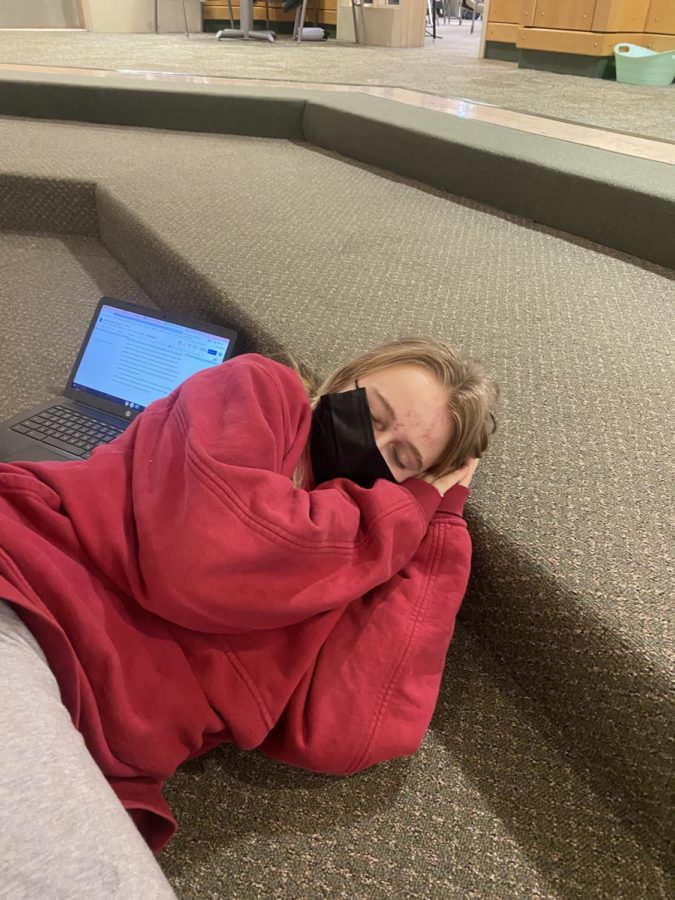Is a good grade worth a bad nights sleep?
February 16, 2022
Is a good grade worth a bad nights sleep?
Do you find yourself dozing off in class? Yawning? Not paying full attention? Feeling emotional? This is because you aren’t getting enough sleep, or a good enough sleep. Many students rely on caffeine at a young age to wake up. Many lose focus. The National Sleep Foundation and the American Academy of Sleep state that, “teens need between 8 and 10 hours of sleep per night.” But this isn’t happening, and it’s taking a toll on students’ learning experience and their mental and physical health.
Sleep benefits the brain and the process of learning information through many aspects such as creativity, memory, attention, and more. Academic performance and engagement in class is vital to a good education. Many students experience a feeling of pressure when they have a big test they need to study for. They are often advised to “get a good night’s sleep,” but usually do the opposite, and stay up the entire night studying in preparation for the exam. A lack of sleep can cause a halt of creative thinking, which is vital for making connections in the curriculum and thinking of new and expressive ways to solve problems. Sophomore student at Ipswich High School, Tess O’Flynn states, “when I don’t get a good night’s sleep, I notice that I can’t focus and am distant from the lesson. I find it harder to comprehend and retain information and struggle to perform with my full ability if I had gotten a better night’s sleep.” Tess is just one example of a student who spends their night studying or worrying about school, which only leads to a worse outcome. Students also experience impaired memory and slower processing when they do not get enough sleep. This is because their reaction time is slower and without enough sleep, the brain has a hard time forming memories. A poor night’s sleep is also tied to physical issues such as, “lethargy, headaches, and pain that may contribute to absences due to illness” (Sleep Foundation). Sleep is an important factor for the academic experience to be fulfilled, and many students, even at our own high school, notice the effects.
For many teens, lack of sleep can have serious long term and short term effects on their mental health. The BBC future website states that, “It should come as no surprise that a serious lack of sleep, or seriously disturbed sleep, is one of the most common symptoms of depression among adolescents.” Especially during the early teenage years, a lack of sleep can worsen depression and anxiety or even make someone more likely to have those mental health problems in the future. Also researchers from the University of Pennsylvania stated that, “subjects who were limited to only 4.5 hours of sleep a night for one week reported feeling more stressed, angry, sad, and mentally exhausted.” This study can also be proven by one of our Ipswich High school Seniors, Maddi Mclauglin. Maddi said that not enough sleep greatly affects her mental health and how she performs at school. She said, “Totally, when I get less sleep my mood is overall negative and I become more stressed, sad and angry in the day.” She also said that she prioritizes homework over sleep and that is a big reason why the next day she has a harder time staying positive and awake in class. Sadly, many teens face these struggles. At what point does school work stop being more important than a child’s mental health?
Teenage years are some of the most important years for education and growth of the mind. Without a good night’s sleep, academic performance and mental health is affected in a negative light. We need to prioritize sleep for an overall less stressful future.

